8 Foods GI Doctors Avoid Entirely And 7 They Only Eat in Moderation

Gastrointestinal (GI) doctors are experts in the digestive system, and their dietary choices reflect their understanding of what best supports gut health. While some foods are avoided entirely due to their negative impacts, others are consumed in moderation to balance health benefits with potential drawbacks. This article explores eight foods that GI doctors steer clear of and seven that they enjoy with moderation. Each choice is backed by the wisdom of years spent understanding the complex interactions within our digestive system. Discover the reasons behind these dietary decisions and how they might apply to your own eating habits.
1. Processed Meats

Processed meats, such as bacon, sausage, and deli meats, might seem tempting, but GI doctors avoid them entirely. They are laden with nitrates and saturated fats, which are known to increase the risk of colon cancer.
Moreover, these meats are preserved with numerous chemicals that can harm the digestive tract over time. The convenience they offer is overshadowed by the long-term health risks they pose. It’s not just about the meat; it’s about the additives that come with it.
Swapping them for fresher options can enhance overall health. The risks often outweigh the taste.
2. Artificial Sweeteners

Artificial sweeteners, especially sorbitol and sucralose, are notorious for causing digestive issues. GI doctors often warn against them due to their disruptive effects on the gut microbiome.
These sweeteners can lead to bloating and diarrhea, making them a poor substitute for natural sugars. While they promise a calorie-free sweetness, they come with potential discomfort and health concerns.
Overconsumption can lead to chronic digestive problems. Alternatives like stevia or honey offer sweetness without the same level of risk. The choice to exclude them is a step towards better gut health.
3. Deep-Fried Foods

Deep-fried foods are a staple at many gatherings, but GI doctors advise against them. These foods, known for their greasy appeal, are hard to digest and promote inflammation.
The high-fat content often exacerbates symptoms of acid reflux and irritable bowel syndrome (IBS), creating discomfort for those with sensitive digestive systems. It’s not just the calories that add up; it’s the toll they take on the gut.
Opting for baked or grilled alternatives can satisfy cravings. The crunchy appeal doesn’t outweigh the potential digestive harm.
4. Highly Processed Packaged Snacks
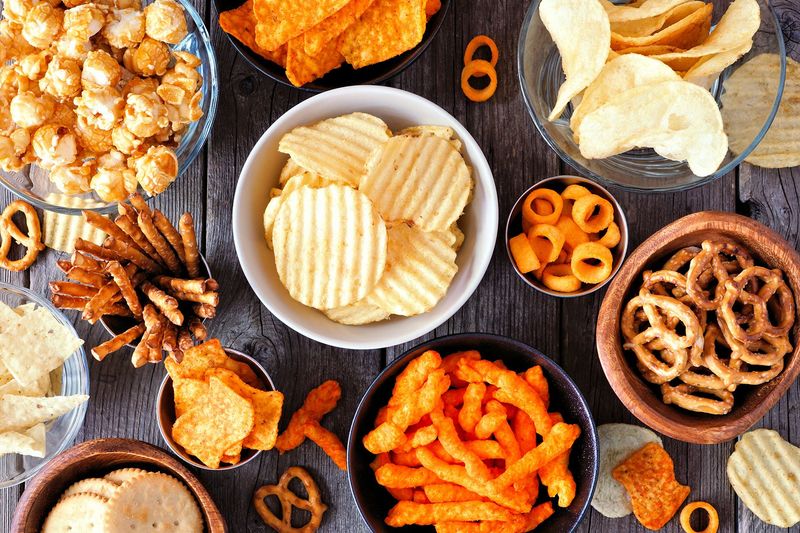
Highly processed packaged snacks, colorful and convenient, are often a no-go for GI specialists. These snacks are low in fiber and high in unhealthy fats, sugars, and additives.
The lack of nutritional value makes them a poor choice for digestive health. They can disrupt the normal function of the digestive system, leading to bloating and discomfort.
Choosing whole, unprocessed foods can improve digestion and overall well-being. The convenience is enticing but doesn’t justify the negative impact on health.
5. Sugary Sodas and Energy Drinks

Sugary sodas and energy drinks may provide a quick boost, but GI doctors tend to avoid them. These beverages are loaded with sugar or artificial sweeteners, which can irritate the gut lining.
The insulin spikes they cause can be detrimental to both digestive and metabolic health. Regular consumption can lead to chronic issues like acid reflux and bloating.
Opting for water or herbal teas helps maintain digestive harmony. The temporary energy isn’t worth the long-term digestive chaos they might cause.
6. Unwashed or Improperly Handled Raw Sprouts

Raw sprouts, often seen as a healthy choice, can be a hidden source of danger if not handled properly. GI doctors steer clear of them due to the high risk of bacterial contamination.
Sprouts like alfalfa and bean are prone to harboring harmful bacteria such as E. coli or Salmonella. The moist environment they grow in is ideal for bacterial growth.
Ensuring proper washing and handling reduces risks. However, the potential for foodborne illness often leads experts to avoid them altogether.
7. Red Meat
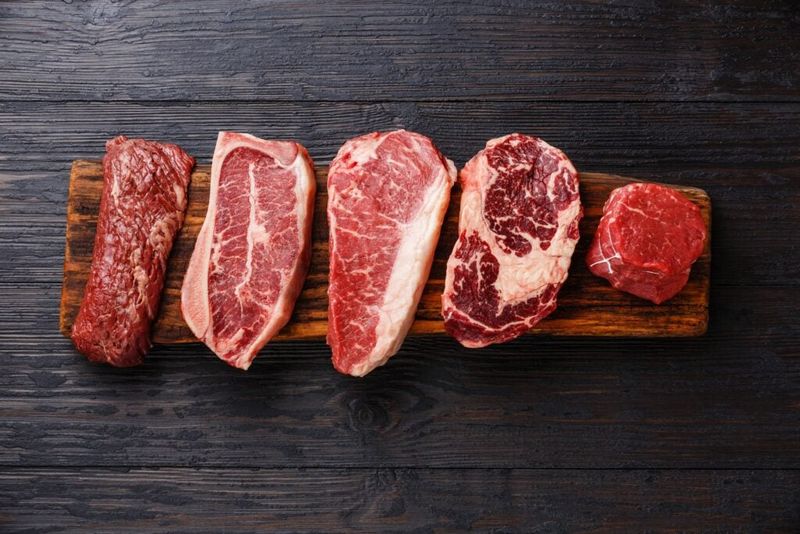
Red meat, while a staple in many diets, is approached with caution by GI doctors. Consumed in large or frequent amounts, it poses risks of increased colon cancer and digestive difficulty.
The rich taste doesn’t compensate for the potential health consequences. Overcooking or charring can exacerbate these risks, introducing harmful compounds.
Moderation or choosing leaner cuts can reduce harm. The decision to limit intake reflects a balance between taste and health.
8. Alcohol

Alcohol, especially hard liquor, is something GI doctors avoid or consume sparingly. It can damage the stomach lining and disrupt the microbiome, leading to digestive disorders.
The allure of relaxation comes with the cost of increased acid reflux and potential liver damage. Even moderate consumption can impact gut health.
Choosing lighter options or reducing frequency can mitigate risks. The indulgence often doesn’t justify the digestive repercussions.
9. Dairy Products

Dairy products, including whole milk and cheese, are enjoyed with caution. Many people experience lactose intolerance, leading to bloating and gas.
The richness of these products can trigger digestive discomfort, making moderate consumption more favorable. Choosing lower-fat options may lessen the impact.
Balancing enjoyment with tolerance is key. A careful approach to dairy helps prevent unnecessary digestive strain.
10. Gluten-Containing Grains
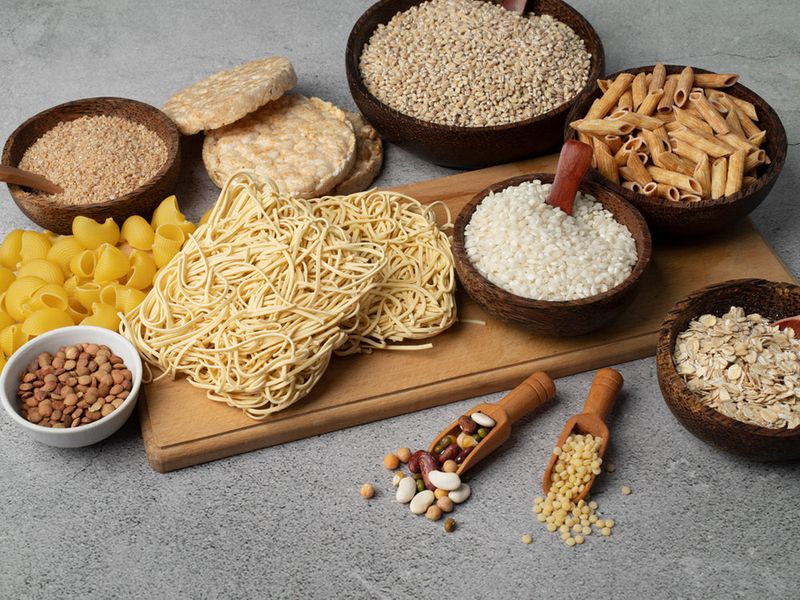
Gluten-containing grains are consumed in moderation by those who may have sensitivities. While not harmful to everyone, they can cause problems for those with celiac disease or gluten intolerance.
The decision to limit intake ensures a balanced diet without unnecessary discomfort. Exploring gluten-free alternatives can provide variety without compromise.
The awareness of personal tolerance guides these choices. Listening to one’s body is crucial for digestive harmony.
11. Coffee

Coffee, a beloved morning ritual, is enjoyed mindfully by GI doctors. It can increase stomach acid, potentially leading to reflux or diarrhea in sensitive individuals.
The aromatic appeal must be balanced with the risk of digestive upset. Moderation allows enjoyment without discomfort.
Selecting lower-acidity blends may reduce impact. The pleasure lies in its mindful consumption.
12. Spicy Foods
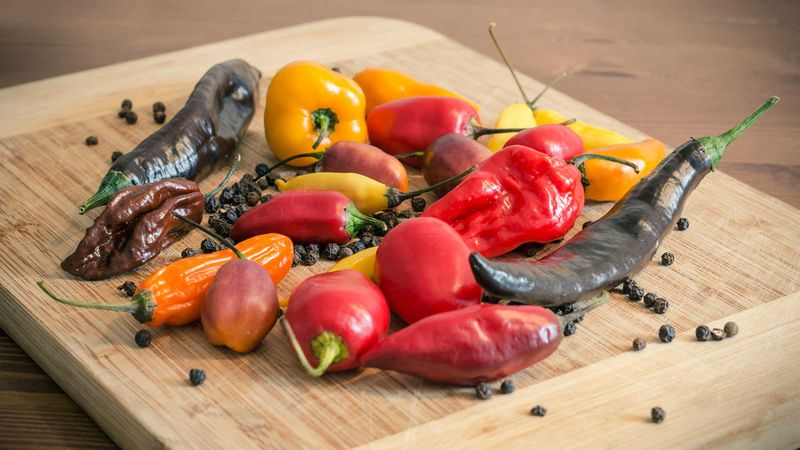
Spicy foods, with their tantalizing flavors, are eaten with care by those sensitive to digestive issues. They can exacerbate symptoms of acid reflux or IBS.
The heat they bring to the palate must be balanced with potential gut irritation. Enjoying them in moderation helps prevent discomfort.
Exploring milder spices can maintain flavor without risk. The delight of spice is tempered by mindful choice.
13. Beans and Lentils
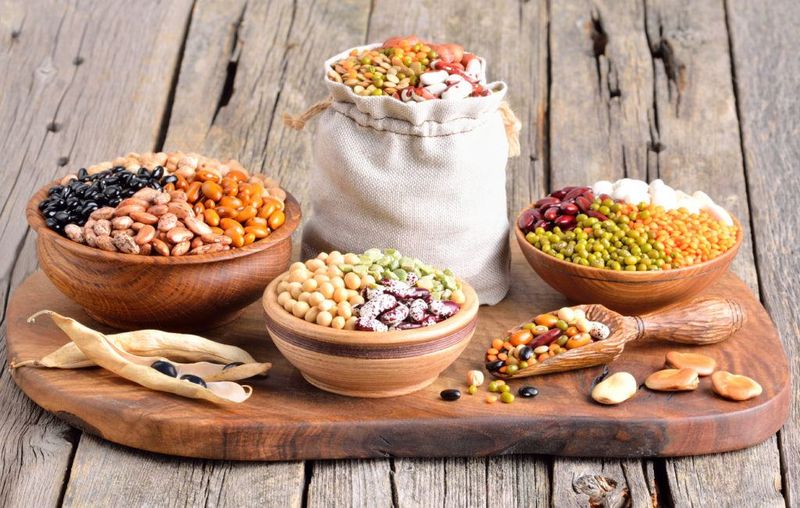
Beans and lentils are consumed thoughtfully, valued for their high fiber content. However, they can cause gas or bloating if introduced too quickly.
The nutritional benefits are undeniable, but gradual incorporation is advised to prevent digestive distress. Cooking methods like soaking can reduce adverse effects.
The choice to moderate intake reflects a respect for balance. Their richness enhances a diet when approached wisely.
14. Raw Cruciferous Vegetables
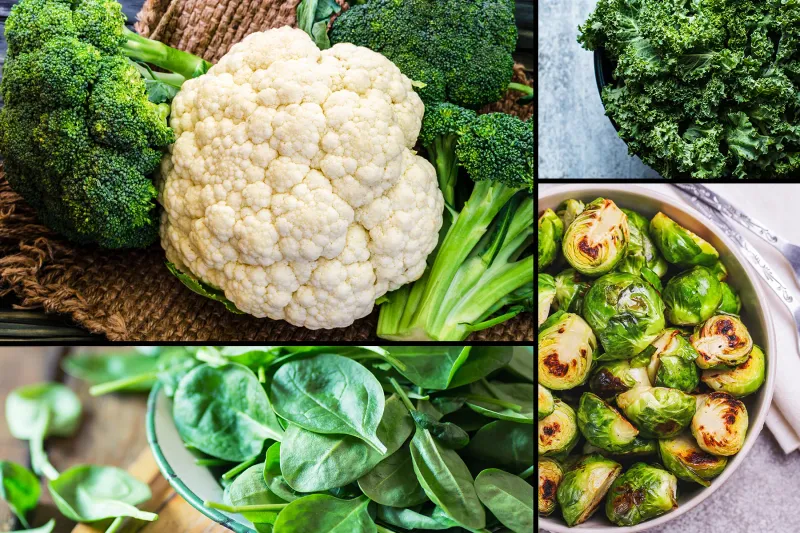
Raw cruciferous vegetables, including broccoli and cauliflower, are renowned for their health benefits but can be gas-forming.
Their raw form is harder to digest, leading to discomfort if consumed in large amounts. Cooking them can ease digestion and retain nutritional value.
Moderate consumption respects both health benefits and digestive tolerance.
15. Chocolate
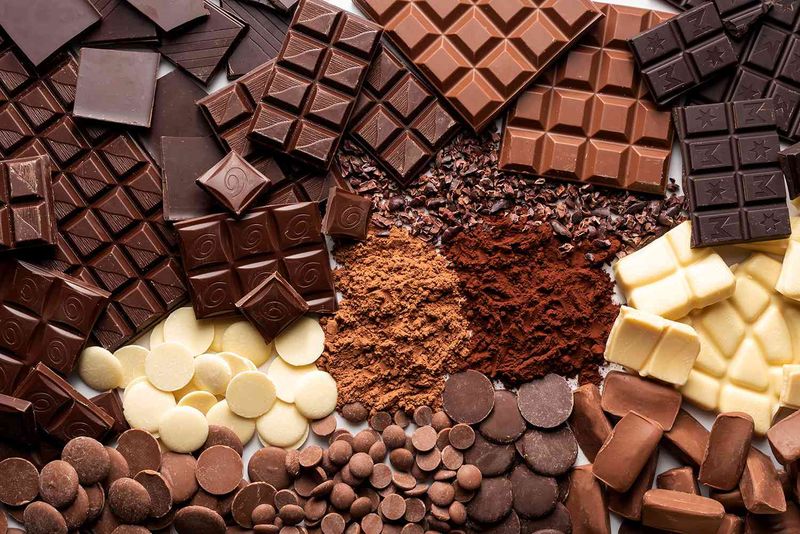
Chocolate, a much-loved indulgence, is enjoyed by GI doctors in moderation. It may relax the lower esophageal sphincter, worsening reflux symptoms.
The rich flavors must be tempered by potential digestive distress. Choosing darker varieties can reduce sugar intake and associated risks.
Enjoying in small amounts respects both pleasure and health. The bittersweet balance is key to its enjoyment.
